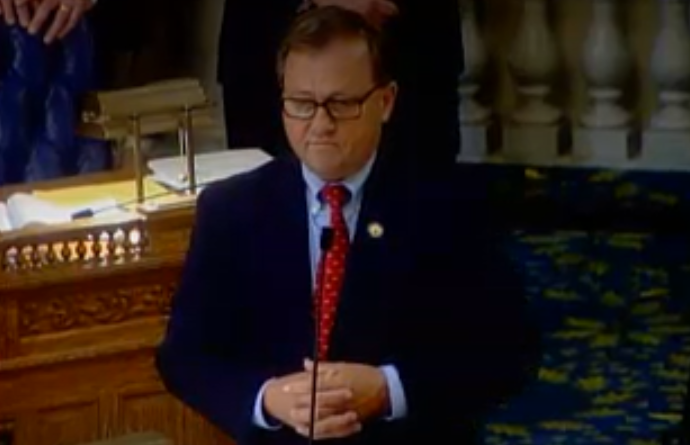| TRENTON, N.J. – A new program that is advertised as a property tax cut for people aged 65 or older was announced this week by Assembly Speaker Craig Coughlin. It would purportedly cut property taxes in half for eligible seniors at a cost of $1.2 billion by 2025.
“This is just another attempt to bribe people with their own money ahead of an election,” said John DiMaio (R-Hackettstown), the Assembly Republican Leader. “Lowering property taxes means actually lowering the tax bill, not taking people’s money and giving some back. We need structural changes to do that.”
DiMaio has proposed his own property tax relief plan that would fully fund schools up to their adequacy budget and tying that aid to lowering property tax levies. The average property tax cut in the first year is estimated to be $804 per homeowner and tenant. Each year property taxes would be lowered further as school funding from the state increases.
“That includes fulfilling New Jersey’s constitutional and statutory spending obligations like aid for schools, colleges, and health care, which are consistently underfunded and would provide direct relief to those who need it struggling to afford it all,” added DiMaio. “StayNJ is more discretionary spending that could be gone as soon as a recession happens. Then seniors and everyone else are paying property taxes way higher than before instead of lower property taxes. All because Democrats want ‘vote for me’ tax credits instead of actually lowering property taxes.”
New Jersey’s revenue has declined by $2 billion since March, creating a $1.8 billion budget deficit this year and a potential $200 million deficit next year – fiscal year 2024. Democrats have a little more than a month to pass a budget or the state would enter a government shutdown, which Gov. Phil Murphy said he would do if the plan remained as it is. Coughlin’s credit would cost a $300 million supplemental appropriation for this fiscal year, and increase Murphy’s proposed fiscal year 2024 budget spending by $300 million.
“Democrats don’t know how to make the state more affordable because their solution is always starting with government, which requires higher taxes. The real solution is lowering taxes. I’ll say it again and again,” concluded DiMaio.
The cost of living has increased by $22,750 since Murphy took office, according to the Dept. of Housing and Urban Development, while the average household income has only risen $8,000. For the past two years, the average New Jersey family has been considered low-income. A family earning less than $94,650 is low-income, and the state median income is $89,700. Before Murphy took over, low-income was $71,900 and the median income was $81,700. Poverty has increased from 9.2% to 10.2% under one-party Democrat control.
# # # |


